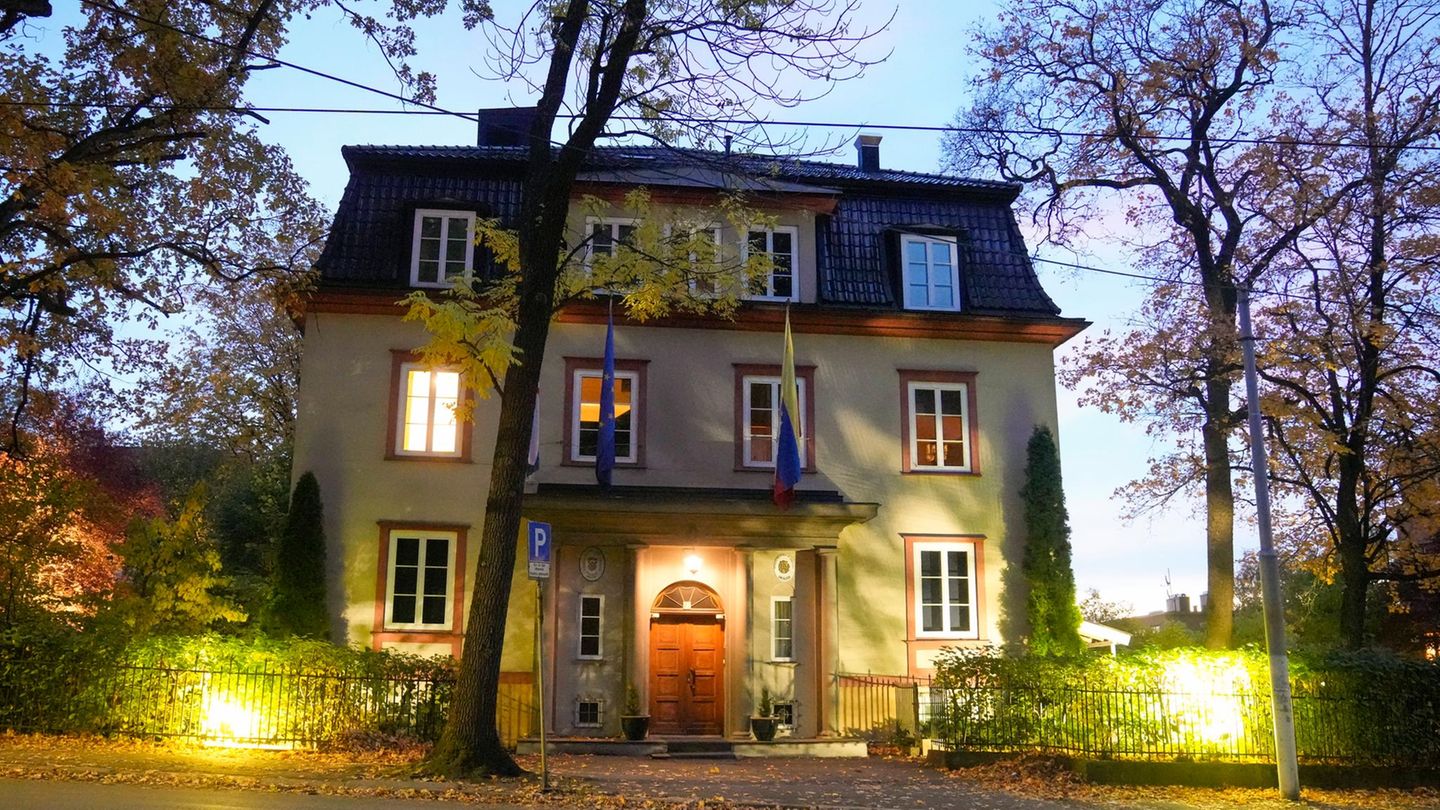Citizenship election
Why is the SPD in Hamburg under Tschenscher so successful?
Copy the current link
Add to the memorial list
At the federal level, the SPD fell into a deep crisis, but in Hamburg Peter Tschentscher keeps the Social Democrats on course. How does the former senior doctor do that?
Initially, Peter Tschentscher was sometimes considered a temporary solution, and the 59-year-old has been the first mayor to have been the first mayor of Hamburg for seven years-and the chances of a sequel for another five years are good. Before the citizenship election in the Hanseatic city on Sunday, all surveys indicate a clear victory of the SPD led by the former senior doctor as a top candidate.
At the tailwind from the federal level, the Bremen native, who is more of an analytical organizer than as a power -conscious string puller, could not count in the election campaign. After early from the traffic light coalition in Berlin, it was not the best for the SPD in the federal government and the personal popularity of her Chancellor Olaf Scholz, which was now dismissed in the Bundestag election, who was Tschentscher’s predecessor in Hamburg.
However, the starting point is familiar to the Hamburg comrades. There was already a similar constellation for the 2020 citizens’ election, the SPD still won. “The Hamburgers know that politics has been better in Hamburg in recent years than in other federal states and in the federal government,” says Tschentscher recently confidently in an interview. The conditions in the Hanseatic city are stable.
Hamburg is a “flagship state,” said the former SPD President of Rhineland-Palatinate, Malu Dreyer, recently when performing together with Tschenscher. What initially acts like an election campaign platform has a real core: the average content is significantly higher than in other federal states. Compared to the other two city -states of Bremen and Berlin, significantly more workers also find a job.
SPD and the Greens have been generating together in Hamburg since 2015
It is not optimal that the election campaigns for the early Bundestag election overlaid a week later last Sunday and the election of the citizens’ election a week later. The Hamburg SPD would have liked to have managed an independent national election campaign, but would “cope” with it. In fact, the surveys speak for it. With 32 to 33 percent, the SPD runs far from all other parties.
This would lose the Social Democrats, who won the absolute majority under Scholz in 2011 under 48.4 percent and still came to 39.2 percent in the 2020 citizens’ election in 2020, the third time in a row. However, the majority is still relatively clear, a new edition of the coalition of the SPD and the Greens, which has been ruling since 2015, is likely to be in the way. Both parties speak out for this.
It was his “wish” to continue the political course in the Hanseatic city and quickly get to a stable government with the Greens, said Tschenscher on Thursday on the television trial of the top candidates in the NDR.
In the competition of the top candidates, Tschenscher already runs high. According to a survey, 51 percent continue to want him as a mayor, the Greens top candidate and vice government leader Katharina Fegebank and the CDU challenger Dennis Thering each each or 15 percent. According to another survey, Tschentscher is also perceived as much more credible, personable and leaders. A weak Hamburg Union has played in the cards in recent years.
Peter Tschentscher’s secret recipe
As a classic power and top politician, Tschenscher is less considered. It originally didn’t go to the first row of politics. He was a senior physician in a managerial function at the University Hospital Hamburg-Eppendorf. In addition, he was a member of the district meeting in the Hamburg district of Wandsbek, between 2008 and 2011 he sat in the citizens. In 2011 he moved to the Senate as a finance senator and only became a full -time politician.
Tschentscher was finance senator under Hamburg’s mayor Scholz for seven years, and he was not said to have further ambitions. When Scholz moved to Berlin as Federal Minister of Finance in 2018, Tschenscher took over-but only when the head of the SPD citizenship group, Andreas Dressel, at the time, waved waving. Many therefore spoke of a temporary solution.
After the SPD victory in the 2020 citizens’ election, Tschentscher stayed and established. In the escalating coronapandemic, the former doctor relied on calm communication and nationwide action. His policy approach is generally liked to be compared to that of his predecessor Scholz. Its emphasizes Unideological maxim that voters were primarily rewarding “good governing”, also fits Tschenscher.
Like Scholz, Tschenscher is not a friend of glamorous appearances, but there are also differences. “I think I have more pleasure to get into conversation with citizens,” replied the married father of an adult son when asked what he did differently than Scholz years ago. Unlike this in his times of Hamburg, Tschenscher also focuses on the mayor’s office. He leaves the leadership of the SPD to others, party leader is the economic senator Melanie Leonhard and the lawyer Nils Weiland. The fact that the SPD in Hamburg is doing so well for years is primarily due to the person Peter Tschenscher.
AFP
LW
Source: Stern
I have been working in the news industry for over 6 years, first as a reporter and now as an editor. I have covered politics extensively, and my work has appeared in major newspapers and online news outlets around the world. In addition to my writing, I also contribute regularly to 24 Hours World.





